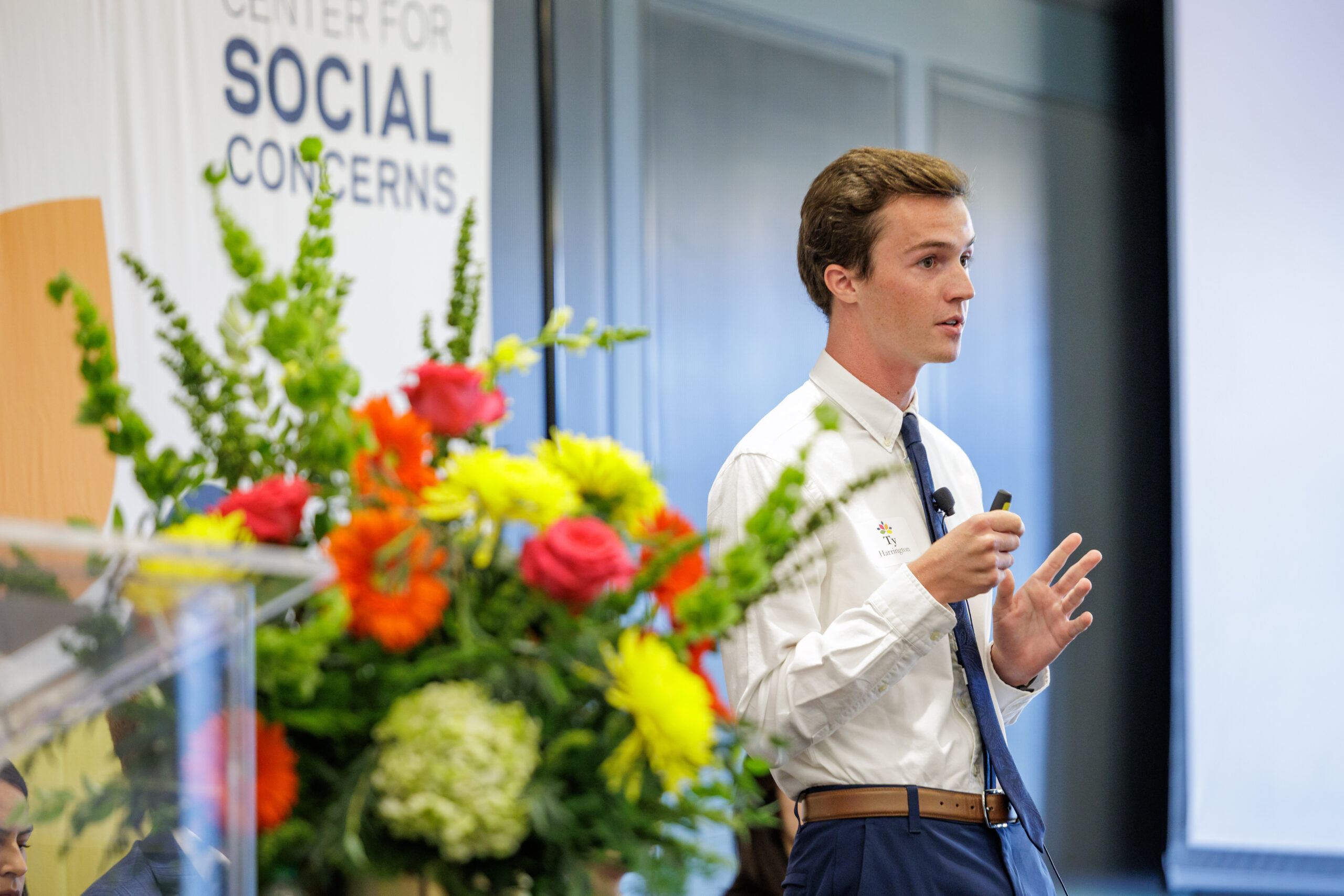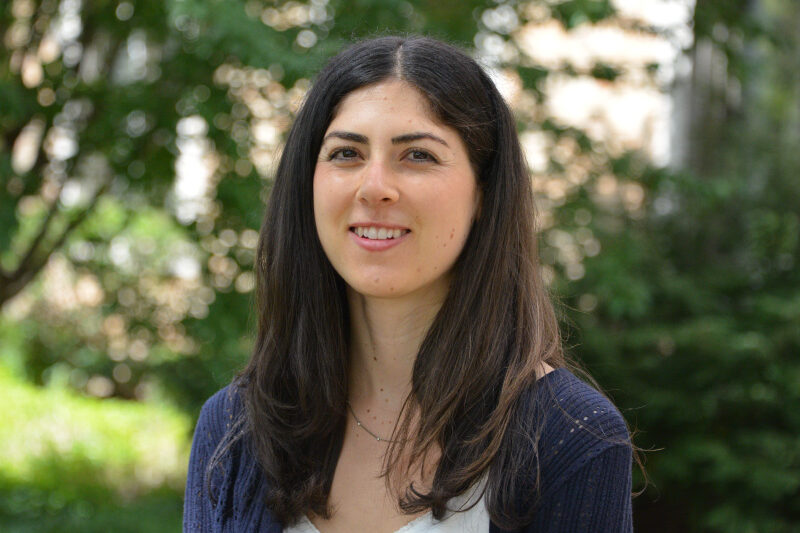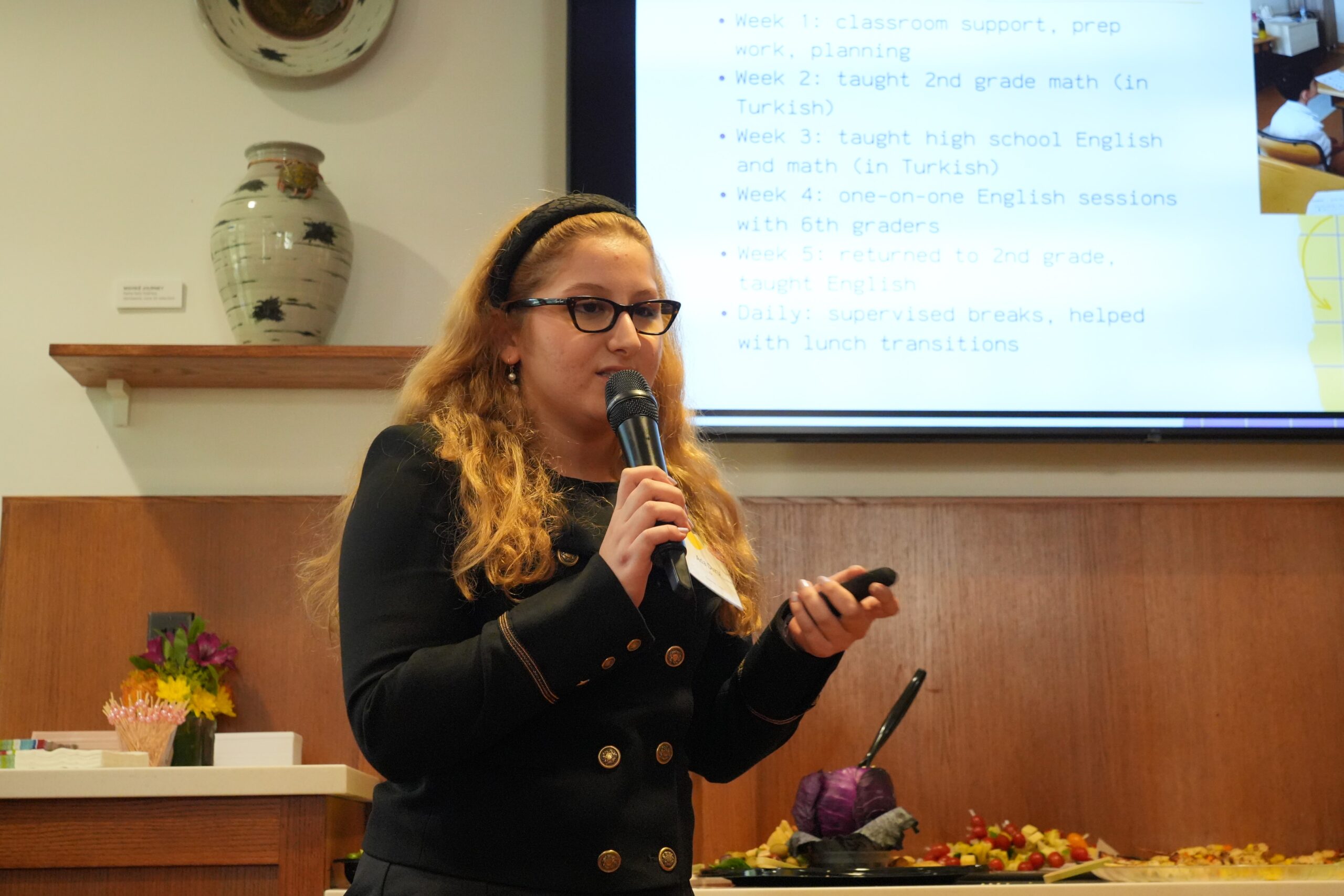The power of encounter
RISE Hometown prepares incoming students for learning in service of justice at Notre Dame
September 17, 2025
As Notre Dame’s 2,118 incoming first-year students were preparing to make the significant transition from the world they have known into the world of higher education, 63 of them prepared by exploring the complex demands of justice through the RISE program at the Institute for Social Concerns. These students were selected from a competitive pool of applicants to the program, which includes both a Hometown and a South Bend option.
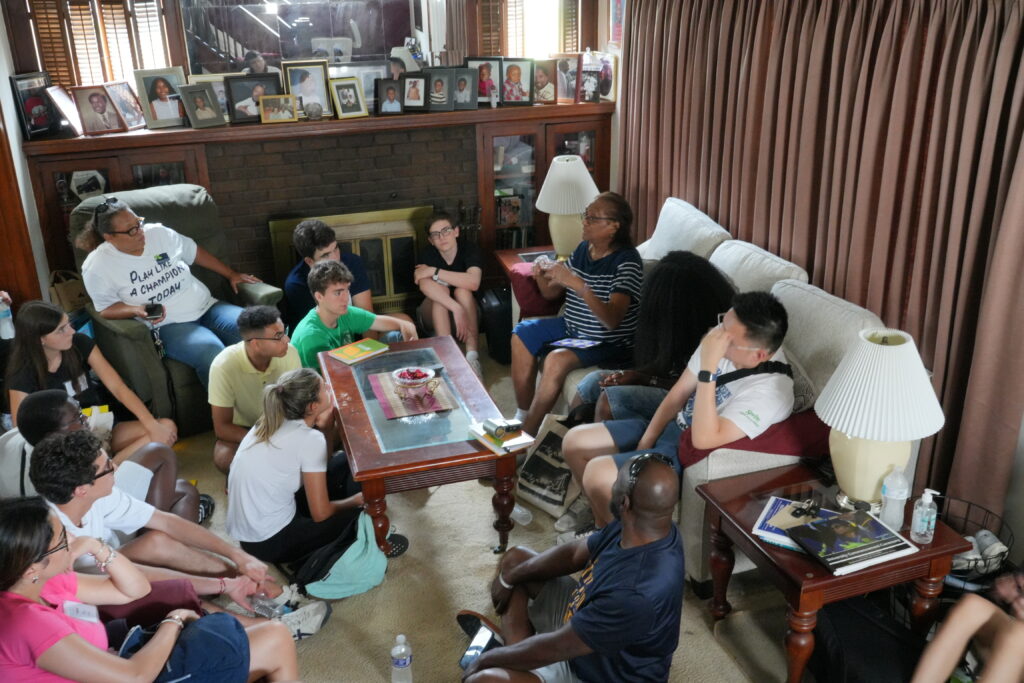
For five weeks in July, students in the RISE Hometown program got close to issues of justice in their hometowns through 100 hours of meaningful work with a local community organization. RISE challenges students to rethink what it means to engage with their communities. As students explore the core principles of Catholic social tradition, they learn to see the communities they engage as collaborators and leaders in shaping their own destiny.
The program’s emphases on proximity and encounter hit home with Elizabeth Heckman of Simpsonville, South Carolina, who worked with the South Carolina Coalition Against Domestic Violence and Sexual Assault. There she witnessed the power of encounter in the quiet steadiness of a caseworker sitting with a survivor, in a support group leader who listens more than she speaks, and in conversations with staff who share not just their expertise but also their stories.
“The people I worked with—volunteers, caseworkers, supervisors—don’t just offer charity; they build relationships,” Elizabeth reflected. “They meet people where they are and walk with them, especially when the road is hard. That’s what Catholic social tradition looks like in action: not just theology or charity—and certainly not pity—but accompaniment.”
Throughout their RISE experience, students engage with thoughtfully curated readings on justice, process the experience and readings through weekly written reflections and photography, and meet virtually with Notre Dame faculty to discuss the demands of justice in their hometown and to consider possible responses on an individual and societal level.
“This summer I got a glimpse of justice,” shares Micah Newsome from West Palm Beach, Florida. “I learned that justice doesn’t always mean finding the perfect solution or even one that everyone agrees on. It starts with being willing to get proximate to problems despite being uncomfortable and creating community with people who face these issues so we can begin working towards solutions.”
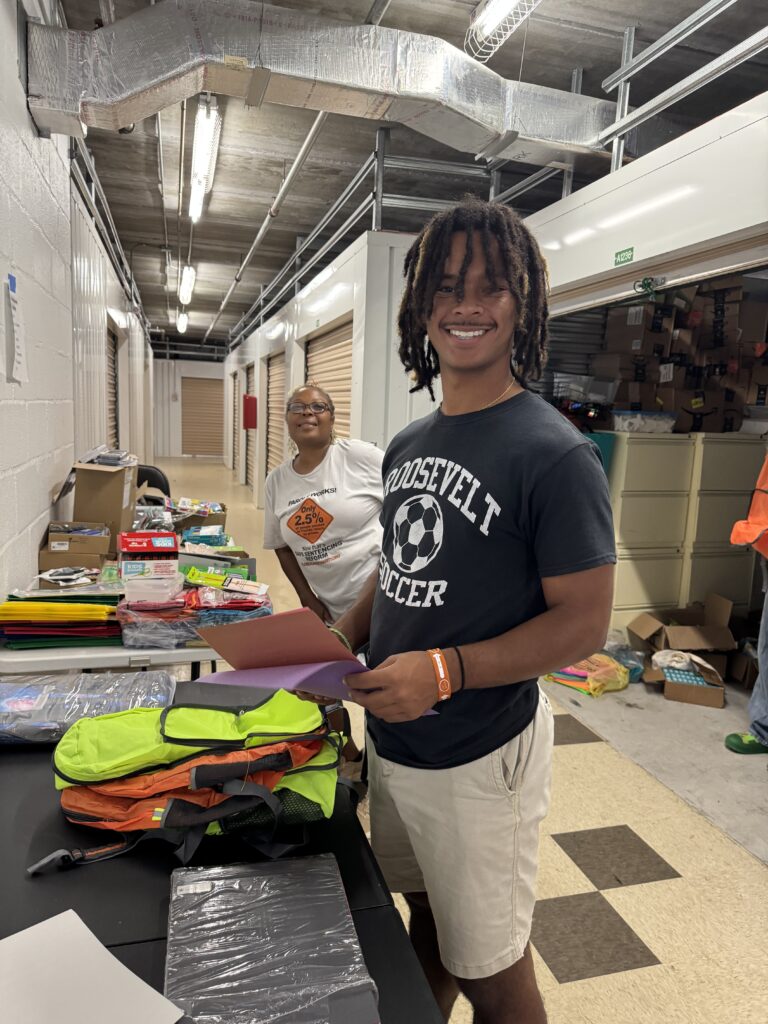
Micah worked with the organization Florida Cares, whose mission is to improve the lives of incarcerated individuals. Due to restrictions on in-person access to incarcerated individuals, Micah spent much of his time responding to messages from individuals on the inside. Nevertheless, these mediated encounters helped him to recognize each person as someone with dignity and a unique story. Micah heard stories of people studying for their GED, trying to be the best parent possible in their seemingly impossible circumstances, and even creating art for a public exhibition. These encounters expanded his moral imagination.
“Bryan Stevenson reminds us that each of us is more than the worst thing we’ve ever done,” Micah says in reference to the founder of the Equal Justice Initiative whose ideas students engaged through RISE. “It’s easy to reduce people to their crimes, but this work reminded me of their humanity.”
In addition to students at sites across the United States, international students participated in RISE in their hometowns in Argentina, Canada, Colombia, Costa Rica, India, Lesotho, Mexico, Panama, Paraguay, and Turkey.
Ada Duru Ak worked with Gaziantep College Foundation in her hometown of Gaziantep, Türkiye (Turkey), offering support to multilingual and refugee students. There she did everything from teaching second-grade math in Turkish to providing one-on-one support for sixth graders to teaching English to high schoolers. She even helped with lunch duty. Through it all, she learned that justice is not only about what you do; it is also about how you show up.
“RISE Hometown taught me that community engagement doesn’t always look dramatic,” Ada shares. Referring to a scholar and community builder whose work RISE students engaged, she continues, “As Tessa Hicks Peterson reminds us, community-based work begins with proximity, not productivity. The small acts of being present, showing up on time, and offering help without being asked become the groundwork for trust.”
Ada also saw how education systems reward merit without acknowledging scaffolding. Some students arrived with fluency, parental support, and stability, while others came in grieving, displaced, and exhausted. And yet, despite these differences in starting point, the expectations for students were identical. Through her experience, she was challenged to think of justice not as symmetry but as equity.
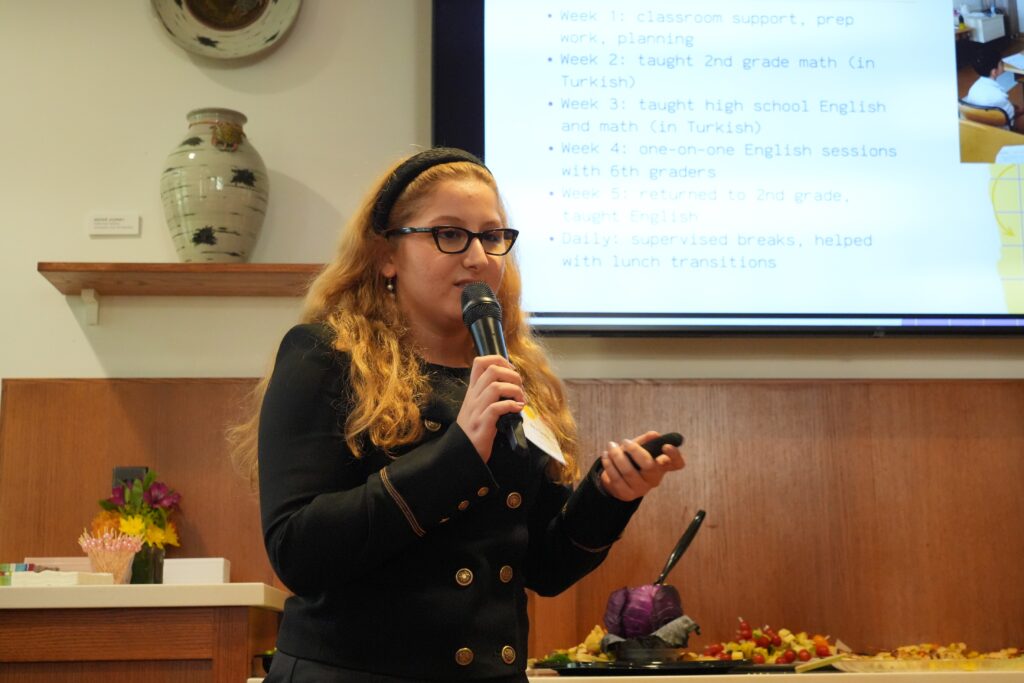
At the same time, Ada witnessed two sixth-grade boys working together—one a recent refugee and the other a Turkish citizen who was fluent in Arabic and Turkish. As they coached each other, cracked jokes, and shared answers, Ada could tell that their friendship was based on mutuality.
“Catholic social tradition tells us that solidarity is a moral obligation, kinship,” she reflected. “Watching these boys reminded me that sometimes justice starts with just being someone’s ally in the room.”
Ada’s experiences developed her practical wisdom and fostered in her the courage to act. As she begins her studies at Notre Dame, she seeks to become what psychologist and New York Times best-selling author Marisa Franco calls an igniter: the quiet person who sparks connection.
“I won’t be the loudest voice in the room,” Ada says, “but I can be the one who remembers names, holds space, and honors dignity through presence.”
In addition to RISE Hometown, the RISE South Bend option includes a one-week immersive experience where a small cohort of incoming students come to Notre Dame and South Bend before Welcome Weekend to build community and explore the structures of justice and injustice in their new home for the next four years. Each of these programs is designed as an entryway for students to begin their journey to justice while at Notre Dame.
Applications for next summer’s RISE will open on May 1, 2026; those interested can complete an interest form any time. RISE Hometown is one of a number of the institute’s immersive summer programs.
Related Stories
-
Social Concerns Summer Fellow returns to India for ongoing research
-
ReSearching for the Common Good: Solbee Kang
-
Bridging worlds through art—Kyla Walker joins institute as international poetry justice fellow
-
The power of encounter—RISE Hometown prepares incoming students for learning in service of justice at Notre Dame
-
The beauty of everyday democracy—Institute convenes scholars, practitioners, Luke Bretherton for democracy conference

